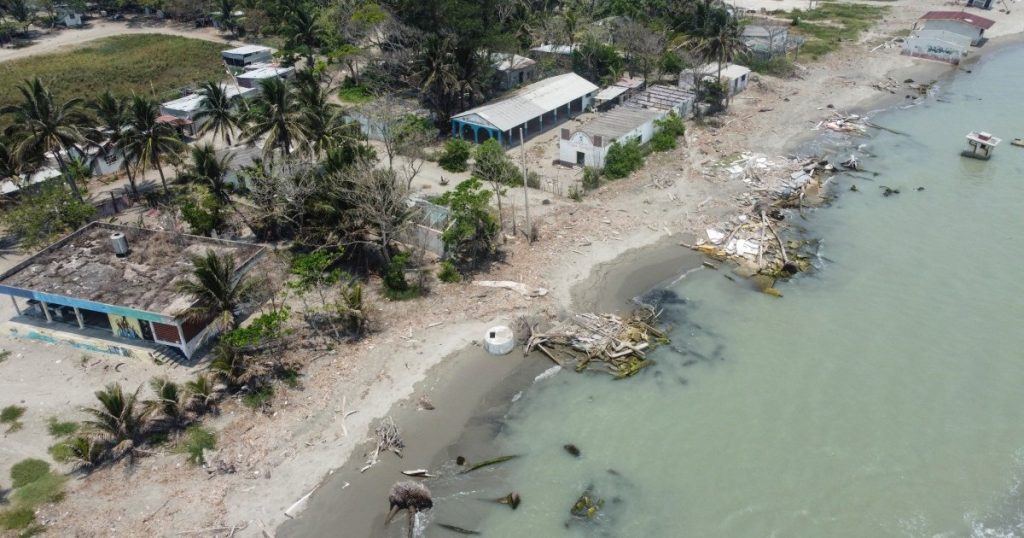Waves crashing against abandoned homes in a Mexican village serve as a stark reminder of the devastating effects of climate change on the coastal community. El Bosque in Tabasco, a major fossil fuel producer, has seen rising sea levels swallow homes and schools, forcing residents to relocate. The impact of climate change is further exacerbated by heatwaves that have hit the region, with temperatures soaring to record highs. The community of El Bosque has become the first in Mexico to be officially recognized as displaced by climate change, highlighting the urgent need for action.
The story of El Bosque and its residents paints a grim picture of the consequences of climate change on vulnerable communities. As ocean warming and melting glaciers continue to contribute to rising sea levels, coastal areas like El Bosque are at risk of being submerged. Despite being a major fossil fuel producer, Mexico is also experiencing the destructive effects of climate change, with heatwaves and water shortages becoming more frequent and severe across the country.
The government’s response to the climate crisis has been mixed, with outgoing President Andres Manuel Lopez Obrador promoting fossil fuel production as a means of achieving energy self-sufficiency. While efforts to plant trees and mitigate the impact of greenhouse gas emissions have been made, critics argue that more needs to be done to address the serious impacts of climate change. The lack of comprehensive public policy to combat climate change has left communities like El Bosque vulnerable to displacement and destruction.
The global debate on climate change has intensified as the June 2 presidential election in Mexico approaches, with environmental groups like Greenpeace urging for stronger action to protect vulnerable communities and ecosystems. The urgency of the climate crisis is evident in the heat-related deaths and water shortages that have plagued the country, highlighting the need for sustainable and long-term solutions to address the root causes of climate change. As temperatures continue to rise and extreme weather events become more frequent, Mexico must prioritize environmental protection and emission reduction efforts.
As the government continues to promote fossil fuel production and energy independence, the conflict between economic growth and environmental sustainability becomes more apparent. The reliance on oil and gas extraction in regions like Tabasco puts communities at risk of displacement and destruction, while contributing to the global climate crisis. The need for a transition to renewable energy sources and carbon-neutral policies is becoming increasingly urgent, as the impacts of climate change continue to devastate vulnerable communities like El Bosque.
In conclusion, the story of El Bosque serves as a powerful reminder of the devastating effects of climate change on vulnerable communities in Mexico and around the world. As rising sea levels, heatwaves, and water shortages become more frequent and severe, urgent action is needed to address the root causes of climate change and protect communities at risk. The global climate crisis requires a comprehensive and sustainable approach that prioritizes environmental stewardship and emission reduction efforts, while simultaneously promoting economic growth and energy independence. Only through collective action and collaboration can we hope to mitigate the impacts of climate change and ensure a sustainable future for all.


